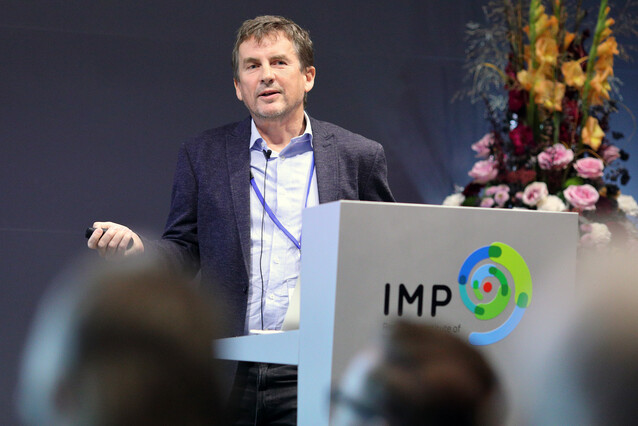IMP Emeritus Director Barry Dickson elected Fellow of the Royal Society
Barry Dickson, professor at the Queensland Brain Institute (QBI) in Australia and IMP emeritus director, was elected Fellow of the Royal Society. Dickson was a group leader at the IMP from 1998, and Scientific Director from 2006 to 2013.
The Royal Society, the oldest scientific academy in continuous existence based in London (United Kingdom), announced the election of IMP Emeritus Director Barry Dickson to its membership as Fellow. Barry Dickson is currently a professor at the Queensland Brain Institute (QBI).
Dickson has pioneered studies of how instinctive behaviours are genetically programmed and wired into an animal’s central nervous system, using sex specific, innate behaviours of the fruit fly Drosophila melanogaster as a model system. He has also developed powerful genetic tools for probing the functions of individual genes and neurons.
Barry Dickson’s lab in Queensland started in 2015, although he was also a group leader at the Janelia Research Campus of the Howard Hughes Medical Institute in Ashburn, Virginia between 2013 and 2021. Before, Dickson was the IMP’s Scientific Director from 2006 to 2013, following an intermezzo as senior group leader at the then forming Institute of Molecular Biotechnology (IMBA). Dickson had first joined the IMP as principal investigator in 1998, after establishing his own laboratory in Zurich in 1996. His early career includes a postdoctoral fellowship in neuroscience at the University of California Berkeley, following a PhD in developmental biology in Zurich, Switzerland, and bachelor’s degrees in mathematics and molecular genetics in Melbourne, Australia.
The laboratory of Barry Dickson at the Queensland Brain Institute currently studies the neural circuits that control walking in fruit flies (Drosophila melanogaster). Dickson and his lab aim to decode how nerve cord circuits produce rhythmic motor patterns, coordinate movements across leg joints, and how brain signals modify these patterns to change direction, speed, and gait.
The Dickson lab uses advanced equipment to measure and manipulate neuronal activity in live nerve cords. The researchers focus on three key goals: expanding genetic tools to target specific cell types; investigating nerve cord responses to signals that trigger backward walking; and identifying pathways that initiate forward walking.
Further reading
Dickson Lab website (Queensland Brain Institute)
https://qbi.uq.edu.au/dicksongroup
